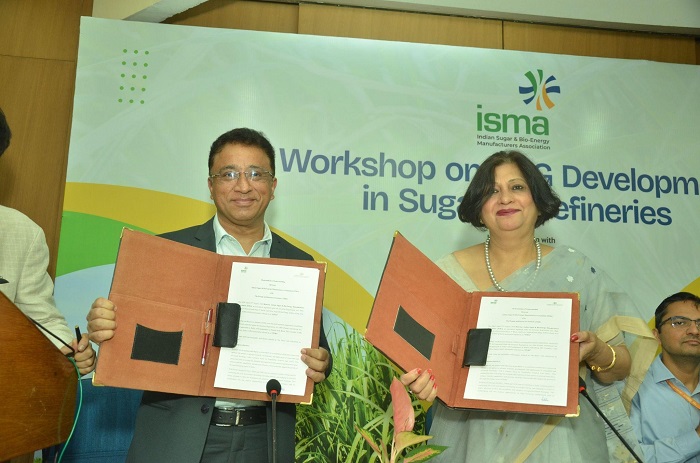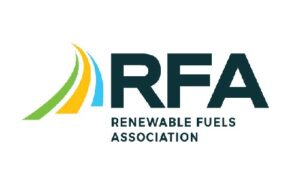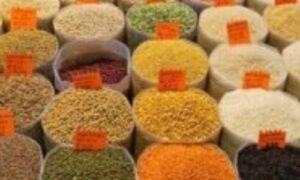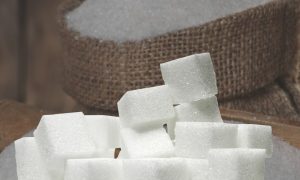ISMA pushes for policy intervention to protect farmers, support ethanol targets, and stabilise sugar market

The Indian Sugar and Bio-Energy Manufacturers Association (ISMA) has requested urgent government support to stabilize the sugar industry amid high production costs and an anticipated sugar surplus. ISMA seeks an increase in the Minimum Sale Price (MSP) of sugar to ₹39.14/kg, higher ethanol procurement prices, and a consistent export policy to support industry viability, timely farmer payments, and growth in ethanol production. These measures aim to mitigate financial strain on sugar mills and bolster renewable energy targets, like achieving a 20% ethanol blend by 2025–26.
The Indian Sugar and Bio-Energy Manufacturers Association (ISMA) has issued an appeal to the government, urging timely policy interventions to support the sustainability of the sugar industry, as it confronts rising production costs, stagnant ethanol procurement prices, and a significant anticipated sugar surplus. The apex body of India’s sugar and bio-energy industry has highlighted the need to promptly adjust the Minimum Sale Price (MSP) of sugar to Rs. 39.14 per kg for SS 2024-25, raise ethanol procurement prices, and establish a stable framework for sugar exports—key measures to stabilise the industry, enable timely farmer payments, and sustain growth in renewable energy initiatives through ethanol production.
M Prabhakar Rao, President, ISMA, said, “We need urgent support from the Govt. to increase the MSP of sugar to reduce losses being faced by the industry. The increase of MSP will protect the minimum ex-factory price particularly during the crushing season during which the prices tend to go below the cost of production, bleeding the Mills and making them financially unviable. This may lead to a delay in payment of cane arrears and sometimes defaults to the farmers. Based on the historical MSP declared by the Government, ISMA has been requesting to revise the MSP to at least Rs. 39.14 per kg, based on the same formula that was used for fixing the MSP in 2017-18 and 2018-19”.
“Even if the MSP for sugar is fixed at Rs. 39.14, the increase of the sugar prices over the last 10 years will be only 0.95 % per annum, much lower than the consumer price increase of 2.23% per year. As such, more than 60% of the sugar is consumed by the beverages, confectionary and other food industries, who are capable of absorbing these prices. There is no cost implication to the ex-chequer”, he, added.
Deepak Ballani, Director General of ISMA, said, “In recent years, the Indian sugar industry has made significant strides with the government’s support, enabling us to improve efficiencies and strengthen our contribution to both the rural economy and renewable energy sector. However, with rising production costs, stagnant ethanol procurement prices, and anticipated surpluses, urgent policy action is needed to ensure the sector’s continued stability. Specifically, we are calling for an increase in the Minimum Sale Price (MSP) of sugar, which has remained unchanged since 2019 despite substantial hikes in cane prices. An adjustment in the MSP is essential to cover rising production costs and help mills make timely payments to farmers.
Additionally, a revision of the ethanol procurement price is necessary to support the government’s 20% ethanol blending target by 2025-26, fostering a sustainable shift towards renewable energy. Finally, a long-term export policy would enable effective management of anticipated surpluses, allowing India to strengthen its position in the global sugar market while maintaining a healthy domestic balance. We, at ISMA, remain committed to working alongside the government to sustain industry growth, protect farmers, and strengthen India’s economic resilience“, he further added.
Critical Need for MSP Revision to Cover Rising Production Costs
ISMA has called for an increase in the Minimum Sale Price (MSP) of sugar, which has remained unchanged at Rs. 31 per kg since February 2019. During this period, the Fair and Remunerative Price (FRP) of sugarcane has increased five times, with the FRP now standing at Rs. 340 per quintal for the 2024–25 sugar season. Under the Sugar Price (Control) Order of 2018, MSP determination should account for FRP levels, but the current MSP fails to reflect these rising costs.
As sugar contributes over 85% of the industry’s revenue, ISMA stresses that the ex-mill price of sugar must be sufficient to cover cane purchase costs and support financial viability. Present ex-mill sugar prices average Rs. 36.5 per kg, which falls below the calculated production cost of Rs. 41.66 per kg. To address this, ISMA is advocating for an MSP of Rs. 39.14 per kg. This adjustment would ensure mills can remain financially viable and make timely payments to farmers, avoiding arrears that strain the rural economy. ISMA also points out that the suggested MSP rise would have minimal impact on consumers, as over 60% of sugar is used by industries capable of absorbing the cost. The price of Rs. 39.14 per kg has been derived using the same formula used to fix the MSP in 2017-18 and 2018-19.

Enhancing Ethanol Procurement Prices to Meet Blending Targets
To support the government’s ambitious target of 20% ethanol blending with petrol by 2025–26, ISMA has requested an increase in ethanol procurement prices. While the government had previously bolstered the industry by raising ethanol prices in line with FRP, prices for ethanol derived from sugarcane juice, syrup, and molasses were not adjusted for the 2023-24 season, impacting financial viability.
ISMA has proposed ethanol prices be set at Rs. 73.14 per litre for ethanol from sugarcane juice or syrup, Rs. 67.70 per litre for B-heavy molasses, and Rs. 61.20 per litre for C-heavy molasses. Establishing a consistent formula for ethanol pricing based on FRP would encourage sugar mills to redirect surplus sugarcane to ethanol production, reducing sugar oversupply and boosting renewable energy output.
Need for Long-Term Policy for Sugar Export
ISMA’s latest estimates forecast a healthy sugar balance for the 2024-25 season, with an opening stock of 84.21 lac tons and gross production as per preliminary estimates expected at 333 lac tons. With the combined domestic and ethanol program demand pegged at around 331-332 lac tons, ISMA foresees excess stock of around 31.21-32.21 lac tons over and above the normative stock of 55 lac tons.
Hence, ISMA has requested the Government for allowing 20 lac tons of sugar exports this season, alongside the establishment of a long-term export policy to regulate surplus. Such measures would not only enhance India’s standing as a key player in the global sugar market but also ensure a fair income for sugar farmers.
Sugarcane is the only crop where 100% of the procurement is being done by the industry from the farmers at the FRP without any cost to the government. Therefore, it is imperative that the financial status of the industry should be green, enabling them to pay farmers on time and contribute to nation-building. With the 2024-25 SS already underway, timely interventions by the government through policy change and support in key areas will safeguard the interests of the farmers and sugar industry.














